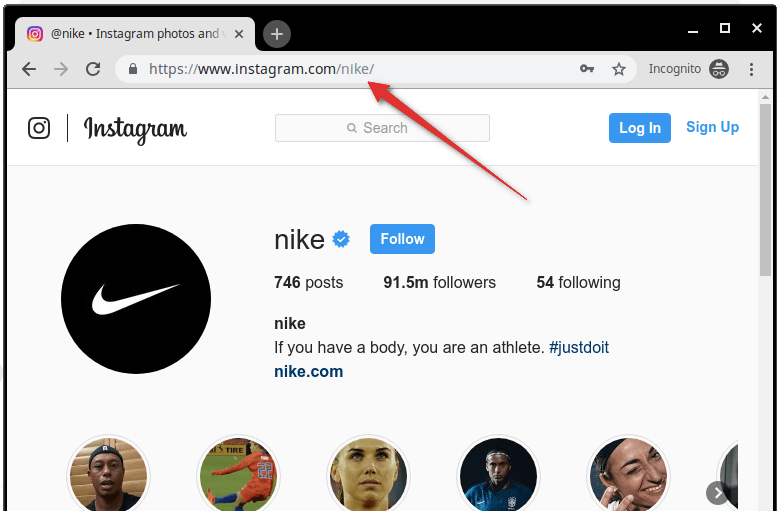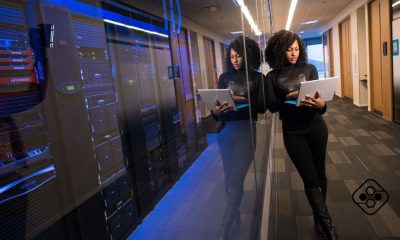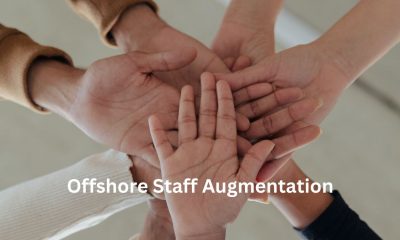Software Development
How to Hire MLOps Engineers in 2023
Numerous enterprises are starting to explore the realms of machine learning and artificial intelligence (AI). Yet, for the majority embarking on this transformative voyage, the outcomes are still in the realm of the unknown. For those who have already initiated their journey, expanding their findings across their organizations is entirely unexplored territory.
Understanding the Role of MLOps Engineer
MLOps Engineer Role and Responsibilities
The MLOps Engineer is the one to build and operate robust machine learning pipelines. They collaborate with Data Scientists to ensure scalability, security, reliability, and efficiency of the models.
An MLOps engineer is responsible for model deployment and continuous maintenance.
https://www.kdnuggets.com/2022/03/mlops-engineer.html
A big task for the engineer is to automate the full cycle, from data prep to deployment of the ML models. They also pick the tools and technologies that help Data Scientists streamline the workflow. A deep understanding of ML frameworks, such as TensorFlow or PyTorch, and DevOps practices is essential.
Pro Tip: When hiring an MLOps Engineer, prioritize applicants with experience in cloud computing platforms like AWS or GCP. Also, integration expertise in CI/CD pipelines. Watch out for resumes filled with buzzwords like ‘AI’, ‘ML’ and ‘DevOps’. Aim to find someone who knows what they are doing.
Skills Required for Hiring an MLOps Engineer
To hire an MLOps engineer in 2023 with the right skills, you need to have a clear understanding of the qualifications required for the role. This section will provide you with insights into the necessary skills that you should look for while hiring an MLOps engineer. We will discuss the technical competency, cloud computing skills, expertise in programming and tools, agile methodology experience, and understanding of DevOps principles briefly to help you make the right decision while hiring an MLOps engineer for your organization.
Technical Competency
Technical know-how is an important skill for an MLOps engineer. It includes the ability to manage and operate ML systems, as well as software dev expertise. This means having a command of programming languages such as Python or R, statistics and modeling, OS like Linux or Unix, Docker and Kubernetes, and cloud platforms like AWS and Azure.
It’s also key to understand tools like Gitlab for version control. Infrastructure management strategies, such as code deployment, CI/CD, cluster setup and debugging, must be known. Plus, the right hardware for processing big data in parallelized environments should be identified.
Building data pipelines is a must when developing a ML system. An experienced MLOps engineer might also create highly available data storage solutions with backup and restore protocols.
Tip: When hiring an MLOps engineer, assess their technical skills properly. Ask them questions about their experience, and look at case studies showing how they solved business problems. This will help you make a quick decision. Don’t forget to check their cloud computing knowledge.
Cloud Computing Skills
MLOps Engineers must be proficient in cloud management. They need to understand deploying apps on public clouds such as AWS, Azure, and GCP.
Setting up virtual machines, configuring storage and networking resources, and data security are essential skills. Knowledge of IaC tools such as Terraform and Ansible is necessary too.
Containerization tech like Docker and Kubernetes is crucial to improve resource utilization and scalability.
Tip: MLOps Engineers should have experience with different cloud providers. This will broaden their knowledge and skill-set to meet diverse organizational needs.
For MLOps Engineers, proficiency in programming and tools is important – it can make or break the job.
Expertise in Programming and Tools
Understanding various programming languages and tools is key for an MLOps Engineer. This includes data structures, algorithms, debugging, version control systems, and automation frameworks. Writing clean code with proper documentation is essential too. Here’s a list of common programming languages and tools an MLOps Engineer needs:
| Programming Languages | Tools |
|---|---|
| Python | Docker |
| Java | Kubeflow |
| R | Jenkins |
| SQL | Git |
| Bash/Shell | Ansible |
Proficiency with these isn’t enough for success in the role. Knowing cloud platforms like AWS, GCP, or Azure, containerization techniques (Kubernetes or Docker Swarm), and having operational experience with deployment pipelines and orchestration is important too.
Netflix’s ML Infrastructure team (MLI) is an example of how expertise in programming and tools can be crucial. In 2017, they created a platform for ML workflows at Netflix scale. They used Python in their microservices architecture and built automated ML workflows. This highlights the importance of knowing programming languages and tools for machine learning operations. Agile methodology knowledge is also a must for MLOps engineers.
Agile Methodology Experience
An MLOps Engineer needs experience in Agile methodologies. Able to work in a cross-functional team and communicate with people from different backgrounds is needed. They should know about Agile practices such as Scrum, Kanban, and Lean Development.
Agile principles help engineers in MLOps teams to run complex projects. Fast delivery of quality code through iterations improves project performance. Adapting to changing requirements during dev also makes projects more efficient.
Having Agile knowledge lets MLOps engineers successfully keep up with industry standards. They’re able to rapidly deploy ML models while staying consistent with accuracy levels.
Pro-Tip: Make sure your MLOps engineer knows Agile methodology. This will benefit them in their role and the wider team. An MLOps engineer without DevOps is like a magician without a hat – they may have some skills, but without their essential tool.
Understanding of DevOps Principles
An MLOps engineer needs to get to grips with the fundamentals of DevOps. This means collaboration, communication and automation between software dev and IT ops.
They must be able to set up Continuous Integration and Continuous Delivery. This lets developers move from integrating code to launching a production-ready version quickly.
They should also know Infrastructure as Code. This makes creating and managing infrastructure easier and more efficient.
Having a handle on monitoring tools such as Prometheus or Nagios is a must. These help detect problems, so engineers can take action before things go wrong.
In short, for MLOps engineers, understanding DevOps is key to deploying ML models and keeping workflows running smoothly. Finding the right one is like searching for a unicorn in a haystack.
Strategies to Hire an MLOps Engineer
To successfully hire an MLOps Engineer in 2023, you need effective strategies. Defining the role and responsibilities, creating a compelling job description, leveraging human resource platforms, conducting technical interviews, and offering competitive salary and benefits are the key sub-sections that we will explore. Each sub-section plays a crucial role in hiring an MLOps Engineer who’s the right fit for your organization.
Defining the Role and Responsibilities
The role of an MLOps Engineer is multifaceted. It requires understanding of both machine learning models and software development. This means optimizing models for production, collaborating with data scientists and IT teams, and implementing algorithms.
To be successful in this role, the MLOps Engineer must be familiar with tools and technologies such as Kubernetes, Docker, Apache Airflow, Jenkins, and more. They must also have strong analytical skills and the ability to communicate with both technical and non-technical people. Teamwork skills are essential, as tasks usually involve collaboration between different departments.
Organizations should define clear job descriptions outlining all the responsibilities for an MLOps Engineer. These should include managing end-to-end workflows from development code testing to model deployment. Knowledge of storage systems like HDFS or Amazon S3 is also necessary. Requirements may vary depending on the business.
The demand for MLOps Engineers has created new opportunities in industries like healthcare and finance. Companies find qualified talent through online courses like TensorFlow Certification Program or AWS Machine Learning Speciality Certification. As time goes on, more programs will be created, increasing the supply of talented professionals and improving industry standards.
Creating an Effective Job Description
To draw in top talent, writing an influential job description is essential. This makes sure you can accurately portray desired job responsibilities, qualifications, and company culture.
Here’s what to consider when making a convincing job description to employ a professional in MLOps:
- Clearly outline the MLOps Engineer’s roles and duties
- Highlight their capabilities in data handling, programming, cloud technology, and machine learning algorithms
- Include educational or experience prerequisites that display expertise in Python, Bash Scripting, Kubernetes, or DevOps automation tools like Jenkins
- Mention any special characteristics of working with your organization like its culture, advantages, or remote work policies
Additionally, ask for related work samples like public repositories or open-source project contributions.
Now it’s time to act! Don’t miss the opportunity to hire top-notch talent by not devoting time to writing a thoughtful job description.
Take your time and list all expectations and goals for your newest team member. It could be the difference between getting an average candidate or an amazing one.
Finding the perfect MLOps engineer on a human resource platform is like searching for a needle in a digital haystack.
Utilizing Human Resource Platforms
Organizing Hiring Platforms
Finding an MLOps Engineer is essential for a data-driven project’s success. Human resource platforms like LinkedIn, Indeed, and Glassdoor can make the process smoother. They use algorithms to match job requirements with potential candidates, giving a focused pool of applicants.
These platforms offer features like messaging and interviewing. Use them to schedule interviews and manage the hiring process. This can help save time and effort for other tasks.
Using HR platforms, companies can quickly locate the right people and reduce admin tasks. For example, a Company found their ideal MLOps engineer through LinkedIn. The platform matched their needs with qualified job-seekers, then they used the scheduling feature to arrange interviews. Finally, they hired a great MLOps Engineer who exceeded expectations.
Conducting Technical Interviews
Assessing applicants for MLOps roles demands interviews that focus on their tech skills. Questions about machine learning algorithms, cloud infrastructures, programming languages, and automation tools can be asked. Different methods, such as behavioral questions, whiteboard challenges, coding exercises, and collaboration on real-world projects, can be used to assess technical abilities.
MLOps engineers need specialized knowledge and advanced skills. Technical interviews let you evaluate their ability to solve complex ML problems plus collaborate with data scientists, software engineers, and sys admins. Scenario-based or project-related questions about AI/ML model deployment phases are a great way to understand the candidate’s capabilities. Ask them about past ML project life cycles to see if they have domain competency in MLOps tech.
At Technology Company X., the hiring manager asked detailed technical questions about data version control systems and how changes are handled during deployments. They also probed on version-controlled artifacts generated by different stages of an AI/ML pipeline. Showing practical expertise in workflow automation tools, like Jenkins and Gitlab CI/CD systems, plus containerized solutions like Docker or Kubernetes for environment management, made the candidate stand out.
Offering Competitive Salary and Benefits
Attracting top MLOps talent? Companies must provide a lucrative salary and benefits package! Here’s what they should consider:
- Competitive salaries based on industry standards.
- Benefits like health insurance, flexible working hours, parental leave, and wellness programs.
- Bonuses, employee stock options, and 401k contribution matching plans.
- Paid training related to MLOps technologies.
- Remote work opportunities.
- Unique incentives like tuition reimbursement or Professional Association membership dues coverage.
Remember: Provide salaries and benefits according to location. For example, according to Payscale.com, MLOps engineers earn $82k-$167k.
Plus, incentives like conference attendance and educational opportunities further demonstrate an employer’s dedication towards developing employees’ careers.
Will AI take over the hiring process for MLOps engineers in the future? Good luck, human recruiters!
Future Trends in MLOps Hiring
To keep up with future trends in MLOps hiring, you need to know that the demand for expertise is growing exponentially, and hiring a qualified MLOps engineer will become increasingly challenging. To succeed, you will need to embrace cloud solutions, cross-functional collaboration, and prioritizing flexibility in a remote working environment. The role of the MLOps engineer will evolve with these trends, so stay updated.
Growing Demand for Expertise
The need for skilled professionals in MLOps is growing rapidly. Companies are relying more and more on machine learning models & data-driven apps, so they are in urgent need of experts who can handle the complexities of deploying & managing them efficiently.
Employers are looking for experienced personnel who have a combination of software engineering and data science skills. They also need people who have worked on similar projects and have strong analytical skills and understand how data streams work. Teams that specialize in integrating MLOps into software development workflows & operating them in production environments are also in demand.
The job market for MLOps is highly competitive due to a shortage of job seekers with the required skills. Employers say they face difficulties finding qualified candidates, leading to longer recruitment cycles and potential loss of business or delays in launching products/services.
Organizations must invest in their existing staff & increase their recruitment efforts. They should highlight opportunities for professional growth, foster a collaborative culture & promote work-life balance to attract top talent.
Businesses must recognize staffing trends & invest time & money upfront in finding the right hires. This could lead to smoother deployments & help meet performance goals. Recruiting MLOps professionals is key for successful automation strategies. Cloud solutions make hiring much easier & more convenient for remote workers.
Increasing Importance of Cloud Solutions
Cloud solutions are becoming more prominent and accepted in the MLOps hiring landscape. Companies recognize the advantages of using cloud tech to boost agility, scalability, and storage. Cloud-based services reduce operational costs while improving performance, data retrieval, and security. Popular cloud providers like AWS, GCP, and Azure provide powerful tools for data analytics, machine learning engineering, and deployment.
Not having cloud tech in your arsenal means you will be left behind in the current competitive market. Manage infrastructure and data easily for streamlining processes and efficient workflows across dev, testing, and production.
Pro Tip: When applying for MLOps positions, make sure you have experience with cloud tech like AWS or GCP and skills related to DevOps practices. Employers highly value these skill sets in the recruitment process. Teamwork is essential to prevent nightmares in MLOps.
Emphasis on Collaborative Teamwork
Hiring trends in MLOps are shifting towards teams that work together. Companies want data scientists, engineers, and developers who collaborate well. Shared ownership and responsibility are important, as ML models become more complex.
Skillful communication and coordination between colleagues is key. Professionals with technical and interpersonal skills will be in demand. Teamwork is essential for fostering innovation in MLOps. Employers expect colleagues to frequently collaborate, share knowledge, and work towards a common goal.
DataRobot’s Report shows that 50% of companies plan to hire more data scientists for advanced analytics in 2023. MLOps engineers must be like unicorn tamers – taming data, coding the horn, and dealing with higher stakes.
Evolving Role of MLOps Engineer
The MLOps Engineer job is quickly changing with a focus on making sure smooth interaction and delivery for all technical sides of ML. As businesses keep stressing the deployment of AI and Machine Learning, the part of an MLOps engineer is becoming more vital.
MLOps engineers must know programming languages, data structures and have knowledge of Data Science techniques, such as Data pre-processing, feature engineering and model selection. They need to understand DevOps tools like Kubernetes, Docker, Ansible, Terraform and cloud platforms including AWS & Azure.
MLOps engineers need skill in making version control systems and Continuous Integration/Continuous Deployment (CI/CD) workflows. In addition, they should be skilled in Machine Learning Operations concepts with considerable experience in ML training pipeline management while keeping track of production-level quality assurance.
As the duties grow for the MLOps Engineer role, businesses would benefit from employing certified experts who can learn from their past and enhance processes better. Employing people who are self-motivated and good team players produces synergy within teams; encouraging open communication to share ideas and ideas helps them stay ahead.
Working from home isn’t just a perk any longer, it’s a survival plan – particularly when your pyjamas double as your work trousers.
Flexibility in Remote Working Environment.
Providing varying remote working arrangements is becoming increasingly popular due to MLOps. Companies are welcoming more flexible remote working environments so they can recruit from anywhere and attract the best talent. This means applicants from all over the world can apply, making job opportunities more accessible.
For successful MLOps projects, teams need the right tools and processes to collaborate effectively. To make sure team members’ daily lives don’t clash with project goals, communication methods need to be adjustable in order to suit everyone’s needs, preferences, languages, technology access etc.
In addition, understanding the motivation of data science mavens is key when it comes to creating a work policy. XYZ Inc., an AI technology solutions company, said “Offering choice at the interview stage lets us pick the perfect candidate for our working style“.
Take Sarah, for example. She left an office job where she was unhappy and couldn’t focus. But when she started a remote job 3+ years ago, it transformed her life. She was able to focus on her work and ABC management’s turnover rate dropped by over 2%.
Frequently Asked Questions
1. What is MLOps and why is it important?
MLOps is the practice of streamlining and automating the processes involved in machine learning projects. It is important for organizations that use machine learning as a business-critical technology, as it helps ensure that models are developed, deployed and managed in a consistent, reliable, and scalable way.
2. What skills should an MLOps engineer possess?
An MLOps engineer should have a strong combination of technical, analytical, and communication skills. Some of the key skills and experience to look for include experience with machine learning algorithms and frameworks, proficiency in programming languages like Python or R, experience with DevOps tools and processes, and proficiency in cloud computing platforms like AWS or Azure.
3. How do I evaluate candidates for an MLOps engineering role?
To evaluate candidates for an MLOps engineering role, you should assess their technical skills, industry experience, and familiarity with modern DevOps tools and processes. You can also ask them to provide examples of how they have applied their knowledge and experience in previous roles, and assess their problem-solving, critical thinking, and communication skills.
4. What are some challenges I may face when hiring an MLOps engineer?
Some challenges you may face when hiring an MLOps engineer include finding candidates with a combination of technical and analytical skills, as well as experience with DevOps tools and processes. In addition, since the field of machine learning is constantly evolving, you may need to ensure that your candidate has experience with the latest technologies and best practices.
5. What are some key trends in MLOps that I should be aware of in 2023?
Some key trends in MLOps that you should be aware of in 2023 include the increasing use of cloud-based machine learning platforms, the adoption of automated machine learning tools and processes, and the growing emphasis on responsible AI and ethical considerations in machine learning projects.
6. How much should I expect to pay an MLOps engineer in 2023?
The salary for an MLOps engineer can vary depending on factors such as location, experience, and industry. However, according to recent reports, the median salary for an MLOps engineer in the US is around $143,000 per year, with top salaries exceeding $250,000 per year at the director or executive level.
-

 Marketing Tips6 days ago
Marketing Tips6 days agoWhat is my Instagram URL? How to Find & Copy Address [Guide on Desktop or Mobile]
-

 Cyber Risk Management1 day ago
Cyber Risk Management1 day agoHow Much Does a Hosting Server Cost Per User for an App?
-

 Grow Your Business6 days ago
Grow Your Business6 days agoBest Instagram-like Apps and their Features
-

 Outsourcing Development1 day ago
Outsourcing Development1 day agoAll you need to know about Offshore Staff Augmentation
-

 Software Development1 day ago
Software Development1 day agoThings to consider before starting a Retail Software Development
-
Marketing Tips6 days ago
B2B Instagram Statistics in 2024
-

 Grow Your Business24 hours ago
Grow Your Business24 hours agoThe Average Size of Home Office: A Perfect Workspace
-
Solution Review24 hours ago
Top 10 Best Fake ID Websites [OnlyFake?]











